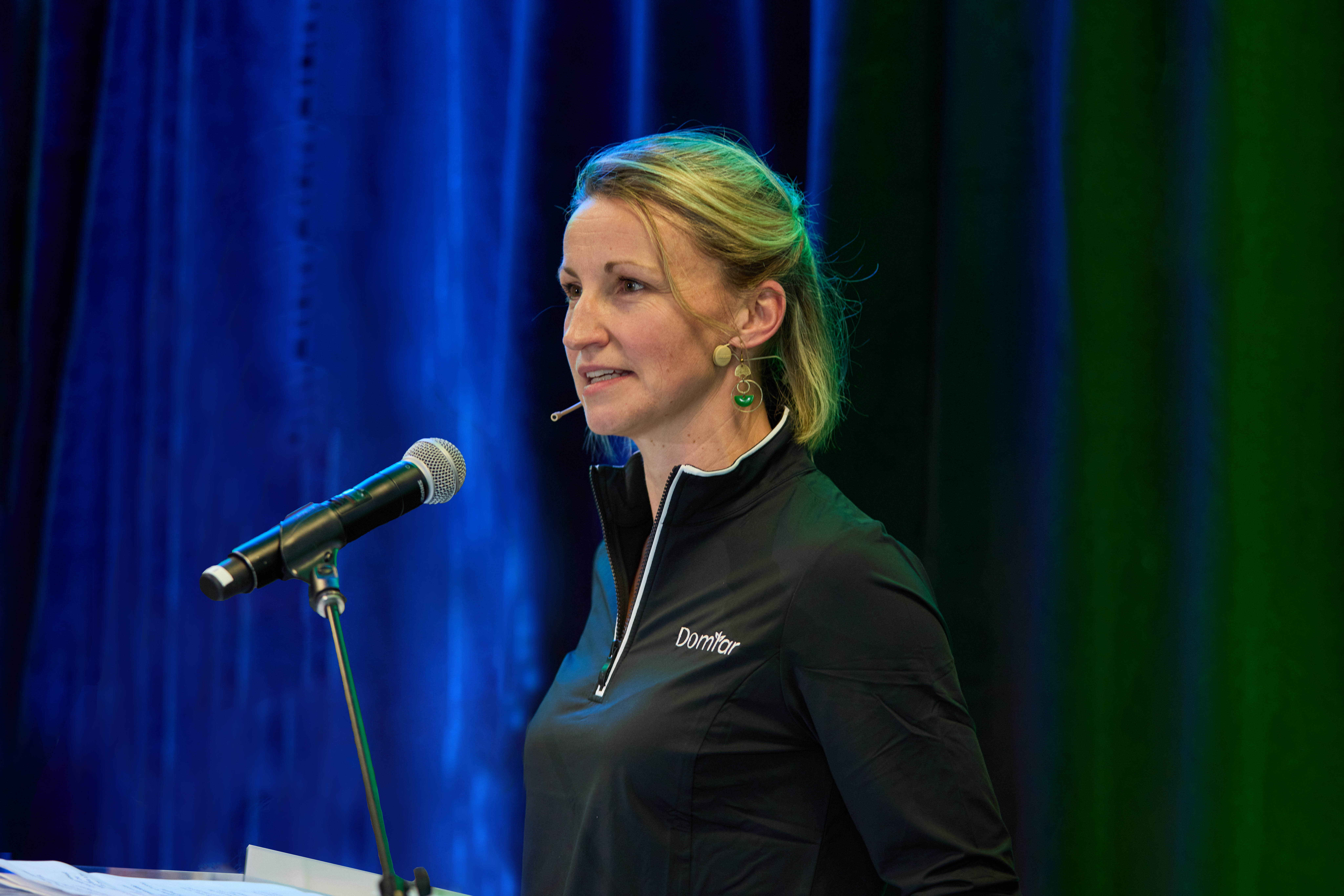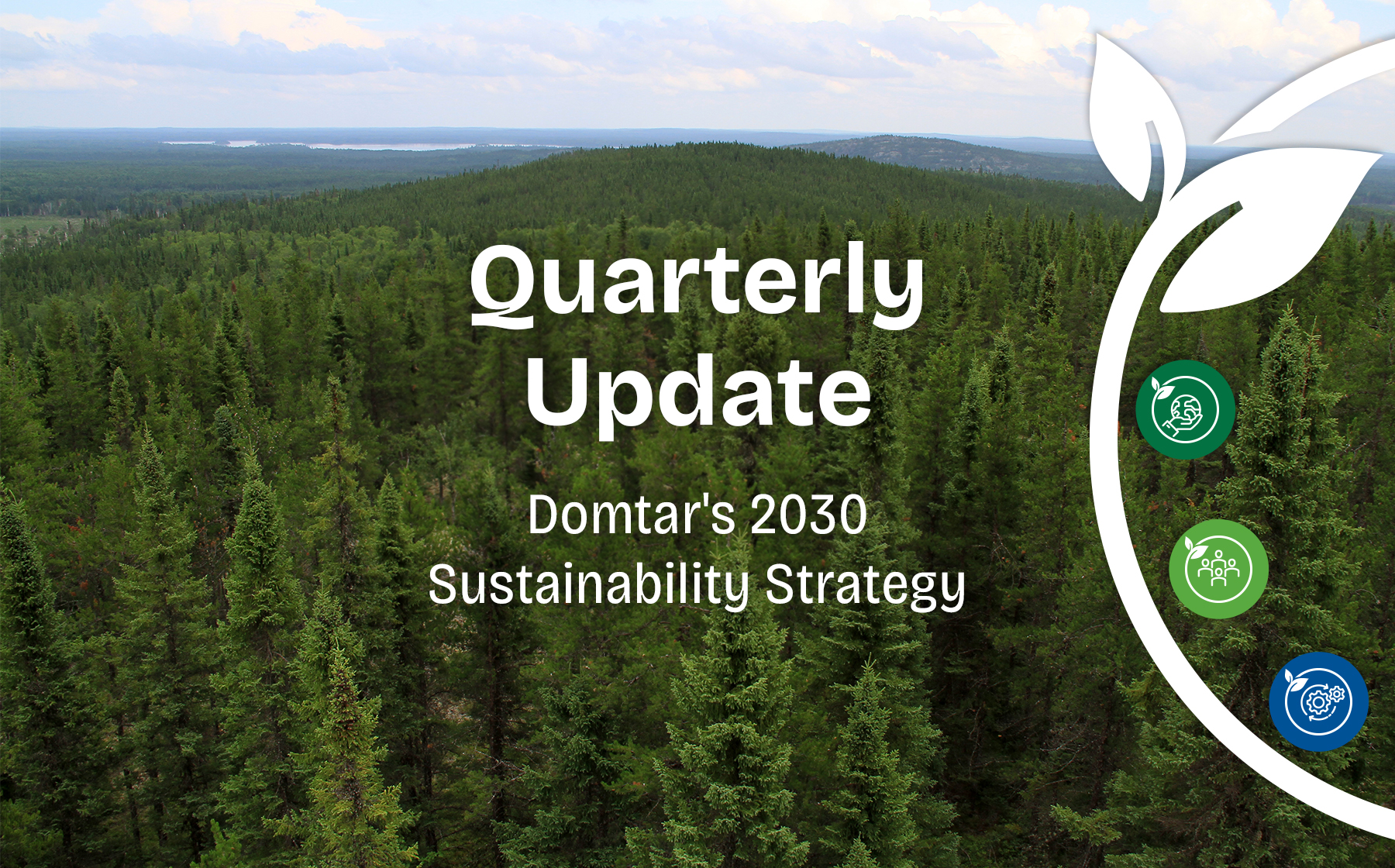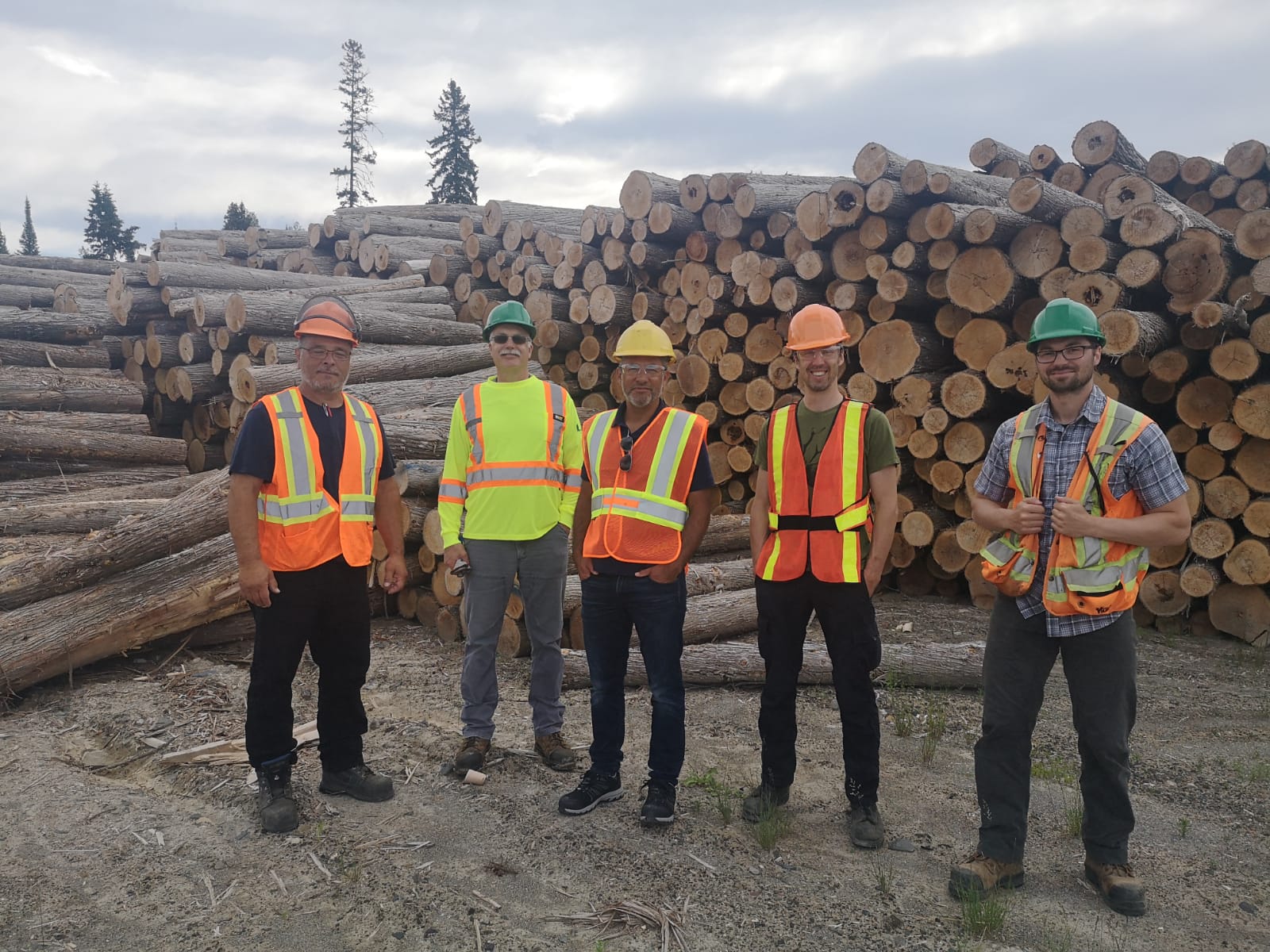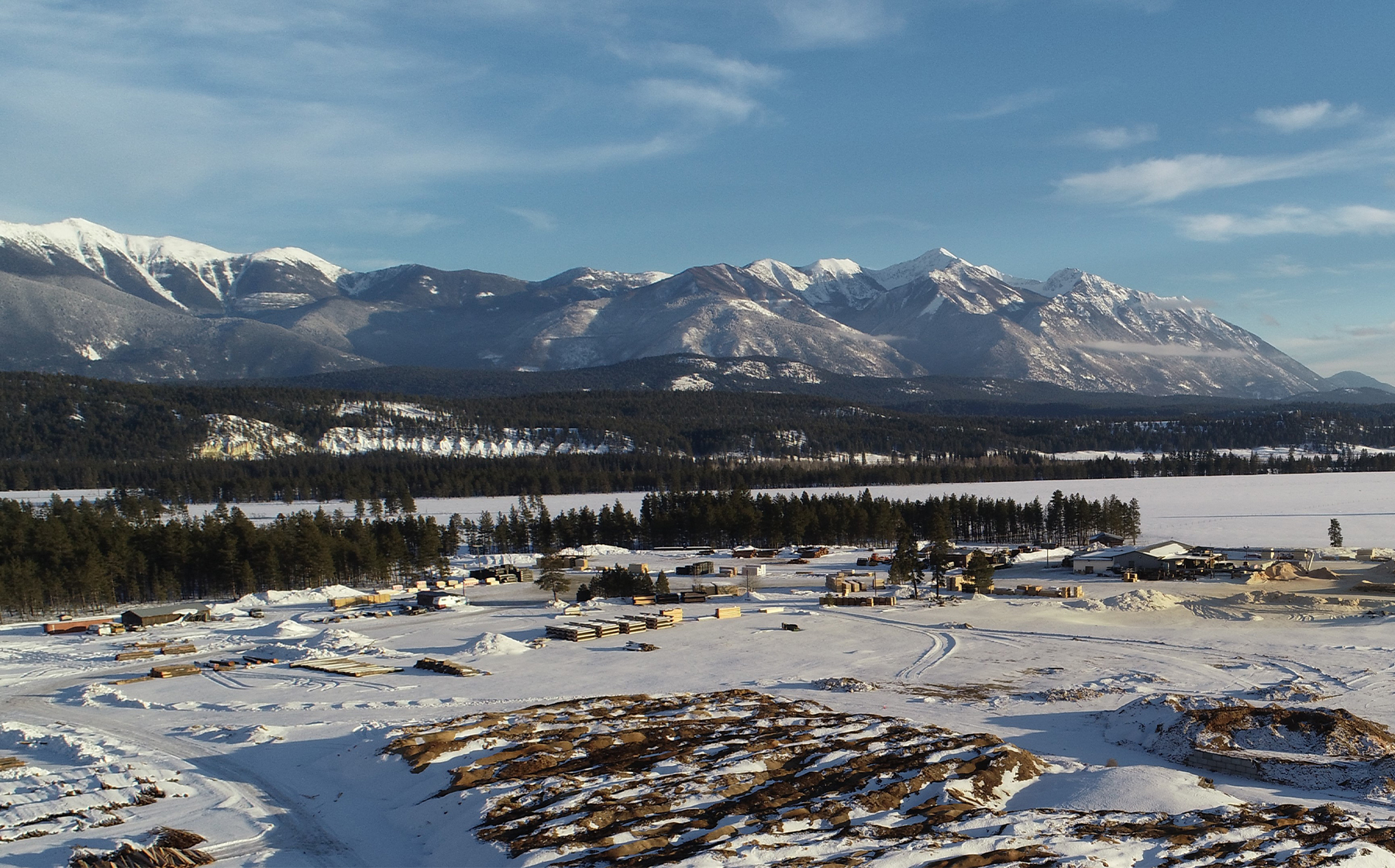Virginie Chambost is a passionate and proven sustainability leader. As Domtar’s vice president of innovation for sustainability and climate since January 2025, she brings more than 20 years of experience in project management, product diversification strategies and risk- and science-based decision making, including projects for the forestry industry, to the position.
“As part of our commitment to turning ambition into action, I’m proud to share that we’ve created a team dedicated to sustainability and embedding it even deeper into how we operate. This team came together through our integration efforts and is focused on leveraging Domtar’s long-standing leadership and real-world experience in sustainable forestry, manufacturing, supply chain and shared value creation — and will serve as an accelerator for progress across the business,” says Sabrina de Branco, Domtar’s chief sustainability officer. “This is a clear signal of how serious we are about sustainability—it’s not a side effort; it’s a business imperative and strategy."
Born and raised in France, Virginie recalls falling in love with the outdoors as a child. “My family, particularly my grandfather, owned quite a lot of land in France, and he managed forests as a side job,” she says. “I had a chance to experience forest management at a young age, and I remember looking at those big trees and thinking, ‘how beautiful.’ Forests are an incredible resource, and I realized early on that we have a responsibility to preserve that resource.”
After earning degrees in international trade, business and innovative project management, Virginie looked for ways to combine her work with her values. The journey led her New Zealand, where she worked with SCION to develop the business strategy for a biobased innovation in composting, and to Canada, where her work focused on biorefinery strategies, biorefinery development and bioproduct innovation in the forestry industry.
“Those experiences cemented my belief that the forestry industry has a significant role to play in addressing climate change, and that companies like Domtar can lead the way in advancing sustainability and innovation in the forestry industry,” Virginie says.
Today, she works at Domtar in Montreal, where she helps our business units marry innovation and sustainability. She also serves as chair of the Pulp and Paper Technical Association of Canada’s BIOFOR committee, which focuses on the industry’s biorefinery and bioeconomy innovations.
We spoke with Virginie about her vision for our company and our industry.
What drew you to Domtar as the next step in your career?
We’ve been seeing a lot of focus on sustainability in the forest products industry, not only in North America but also in Europe and South America. What I think is unique about the way we do things at Domtar — and what drew my attention to this position in particular — is that we approach sustainability in a multidisciplinary way. We want to make advances in not only our carbon footprint but also in our social footprint and how we engage with communities and our customers. We also have to meet the needs of the business, making sure we are resilient but also creating value.
That makes my job very ambitious but also extremely exciting. I get to work closely with the business units to make sure that we deliver on projects and initiatives like decarbonization while also preparing the organization for how these efforts will shape our future. Some aspects of this work will follow existing practices, but others will require innovation and strategic investment. Effective decision-making is critical in order to not only account for the level of investment required but also to seize the opportunity for value creation and to monetize our sustainability efforts.
My goal is to develop a culture of innovation from a sustainability angle and to understand how that will impact our business. How can we best prepare for the future, and how can we create value from that? Because at the end of the day, it comes down to the survival of our mills and creating a brighter future from a sustainability standpoint.
Why is innovation an important part of sustainability?
Early on in my career, I understood the power of analytics for science-based decision making, and I felt that business insights and engineering would marry well with each other. That led me to develop an approach toward product design for the forestry industry. I even cofounded a consulting business — EnVertis — that offered strategic services to the industry, with a focus on innovation, new technology implementation and business model development.
At Domtar, we recognize the need for innovation in our sustainability approach, and we need to think about what the forest products industry of the future could be. Domtar is already a major leader in developing products that can replace fossil-based products. But also, I see an opportunity for us to take an even stronger leadership position as we implement and operationalize our recently launched Sustainability Strategy.
There is both room for and a mandate for innovation and growth in sustainability. We must look for new ways to achieve the results that not only we, but also our industry, want and need to achieve. There is an amazing pool of talent at Domtar, and we have the potential to really develop something beautiful together.
What do people need to understand about sustainability in order to effect change in the future?
Forests are a vital part of the solution to climate change. They serve as a natural sink for biogenic carbon, helping to remove carbon dioxide from the atmosphere. When forests are lost to development, wildfires and unsustainable practices, we lose that critical carbon-removal capacity. As an industry, we have a responsibility to manage forests sustainably and to deliver value to customers in a way that protects this essential resource.
At Domtar, I’m proud to say we already do an excellent job of managing our trees and making our products with an eye toward our sustainability responsibilities. But we recognize this is not well understood across the board in our industry, and we can all do a better job of developing and following best practices in this area. Through partnerships with organizations like the Forest Products Association of Canada and the Paper and Packaging Board in the United States, along with many others, we are also helping to educate customers and consumers about the importance of choosing sustainably produced products.
We can be profitable and even make great strides in value creation while still having a positive impact on the environment. If our company and industry can make some potentially bold investments, look for innovative solutions to existing challenges and, yes, even take on some risk, I think that the forest products industry and even the pulp and paper mill of the future might look quite different than they do today.
What is your vision for Domtar’s future?
I’m extremely pleased with the level of diligence taken by the Sustainability team in developing our new strategy. It took two years to get to where we are now, with full engagement across the board by everyone at the company. That said, we recognize that we don’t have all the answers yet, and I value that we’re approaching the future with both rigor and transparency.
Currently, there are several innovative projects in development and under consideration. There is a great deal of activity and momentum around new ideas and potential investments. We are fortunate to have strong expertise at the table, with everyone working hard to advance what is best for the company, while also supporting our employees, customers and the responsible stewardship of natural resources.
We say we are the fiber of the future, and I believe this is true. Domtar has an important role to play in climate change and in shaping the future of our industry in Canada and the United States. I’m excited to be a part of it.







